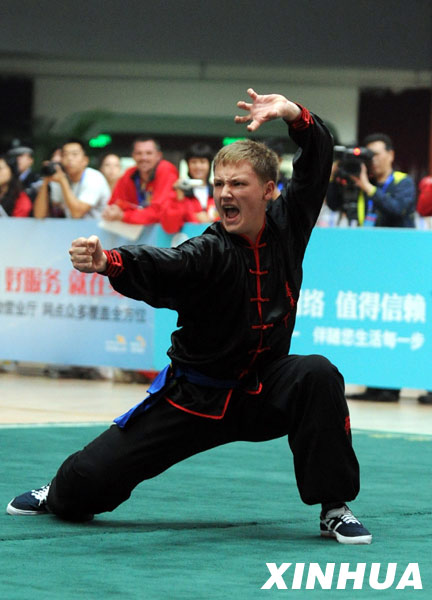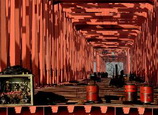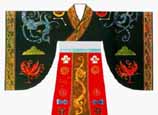
 |
| (Photo/Xinhua) |
"We performers have an old saying. 'Go south if southerners want you and swim north if northerners expect you. If neither does, then spend years along the canal'," Wang recalls.
This sums up a couple thousand of years of experience from Chinese performers. "Areas along the canals are often more dynamic, attracting traders and sailers from all over the country. As a performer, you surely want to go someplace dynamic with a lot of people," Wang says.
Even when the canal was no longer the key transport route, it was still lively and towns were magnets. When Wang was little, he used to travel and perform with his father.
"My grandfather, my father and I all went to a lot of different places to chuang ma tou. We went north to Beijing and south to Nanjing in Jiangsu Province and Shanghai," he says.
The idiom chuang ma tou literally means "to brave a wharf" and is often used by street performers, magicians and gangsters to mean exploring a new market and establishing their reputation. In the old days, performers traveled by ships on the canal and each time they tied up at a new wharf, that was a new market. Performers today still use the old canal term to refer cities far from any water or wharf.
"The origins of the performance tradition in Wuqiao County are hard to trace, but according to folk songs and oral tradition, the first performers were farmers who practiced tricks to entertain family and friends in the field," explains Zheng Zhili, an archeologist and canal expert from the Cangzhou Bureau of Cultural Heritage.
Gradually, they traveled to nearby villages when they were not farming and they realized that people would pay to enjoy their performances.
"The canal has definitely helped to carry on the tradition and expand its reputation by transporting these performers along the water system to all kinds of cities along the way," Zheng says. Those cities were often the most crowded and prosperous regional centers at the time.
The canal operation was at its peak in the Qing Dynasty (1644-1911), when merchants gathered in canal cities and needed entertainment. That was also the peak time for Wuqiao's acrobats and magicians.
In the late 19th and early 20th centuries, "Ghost Hand" Wang's grandfather was a highly popular street performer at Beijing's Tianqiao, an area famous for bringing together performances from all over the country. One of his best tricks was also the shell game with three bowls and three balls.
In the late Ming (1368-1644) and Qing dynasties, when the number and social status of merchants increased rapidly, entertainment business also developed rapidly. Many important canal cities, such as Beijing, Tianjin and Zhenjiang in Jiangsu Province, all had entertainment areas where these performances were concentrated.
At the theme park in Wuqiao County, performers swallow one-meter-long swords, breathe fire and smash rocks and bricks with their bare hands.
Today, instead of performing along the canal, performers are trained more systematically through dozens of training schools and many performance troupes in the country.
In the old days, there were temples near the wharves that were dedicated to performance gods. Performers would go there to pray for good fortune and safety before they set sail and to express thanks when they returned to the wharf.
















 Pretty model shines at Guangzhou Auto Show Hyundai Motor stage
Pretty model shines at Guangzhou Auto Show Hyundai Motor stage


![]()
